Grow Pamoja

Pamoja [pa-moh-ja]
A Swahili word meaning “Together” serves as a reminder of the value guiding the partnership between United We March Forward, Iowa Valley Resource Conservation & Development, and St. Paul's United Methodist Church for the Grow Pamoja project.
Listen to the audio file above for the pronunciation of Swahili "pamoja," spoken by Waithera Were, a woman from Kenya.
Grow Pamoja - A Train-the-Trainer project nourishing community

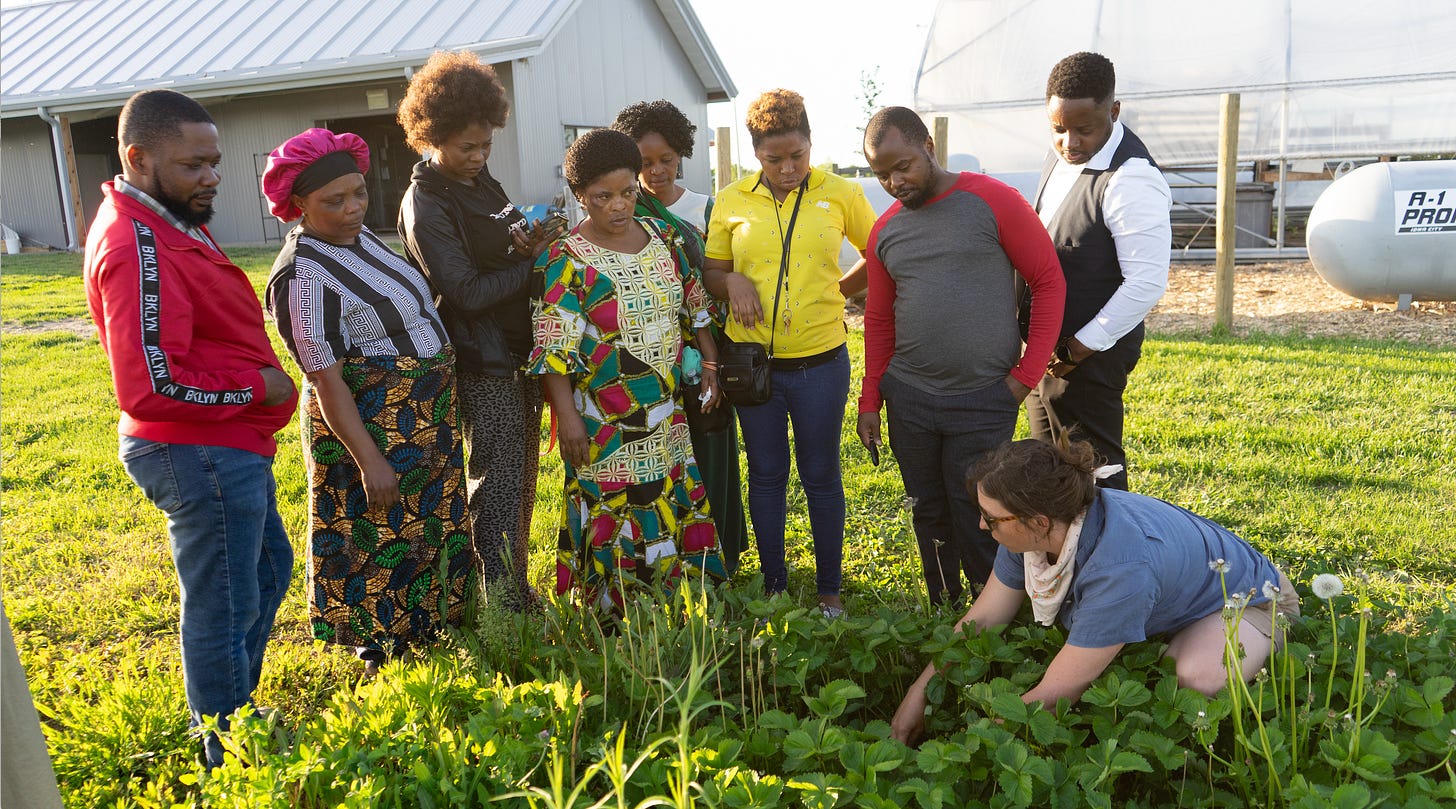
On July 23, 2022, the Grow Pamoja project held a groundbreaking ceremony for its community garden site at St. Paul's United Methodist Church in Cedar Rapids. As the first shovelful of earth got lifted, so did the spirits of all those there. For staff at United We March Forward (UWMF) and Iowa Valley RC&D, the new garden signified a deep commitment to helping community members aspiring to begin their agricultural journey here in Iowa.
That commitment came about thanks to talks between UWMF and Iowa Valley RC&D about the United States Department of Agriculture (USDA) National Institute of Food and Agriculture Community Food Project, 2019-2021.
As a part of this project, Iowa Valley RC&D developed an Eastern Iowa corridor food asset map of Linn and Johnson counties. In the asset map, Iowa Valley RC&D identified St. Paul's United Methodist Church as an underutilized resource in the local food system with available green space for a community garden.
During this time frame, community members who speak Kirundi, Spanish, Swahili, and other languages readily shared how they wanted to launch or expand their farm businesses in the Eastern Iowa region.
However, many did not have access to the same educational materials and opportunities as English speakers. These recognizable challenges launched a community-initiated needs assessment of Eastern Iowa’s food economy.
The needs assessment identified gaps related to support for diverse farm businesses. In particular, there was a significant lack of culturally and linguistically responsive services and processes.
The critical needs of community members in the Eastern Iowa region were related to the availability, accessibility, and acceptability of:
- technical training in farming or business operations
- market access and support networks
- loans or microloans
- growing spaces (land)
Ultimately, the needs assessment and the corridor food asset map led to a partnership between Iowa Valley RC&D and UWMF for another USDA-funded opportunity.
Staff at Iowa Valley RC&D, including Jason Grimm (Executive Director), Michi Lopez (Access and Equity Coordinator), and Giselle Bruskewitz (Program Director), would initiate and successfully get USDA support for their grant proposal with UWMF. Together, the organizations have begun to address gaps and pursue opportunities to provide the growing, broader community with culturally relevant food access.
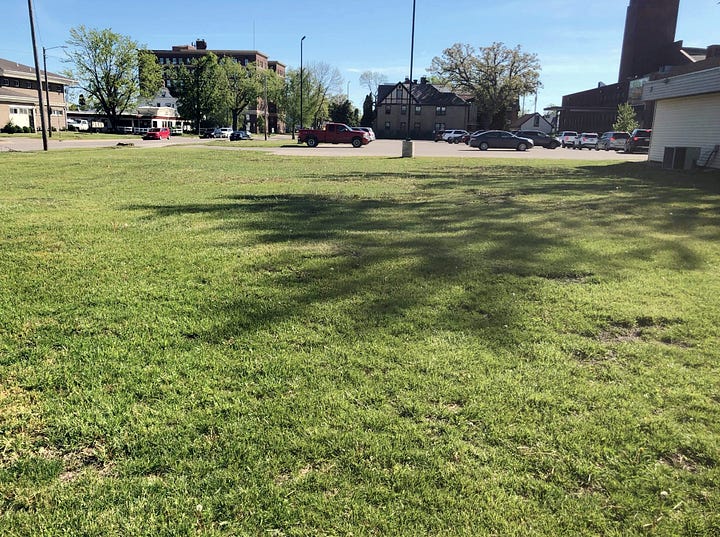
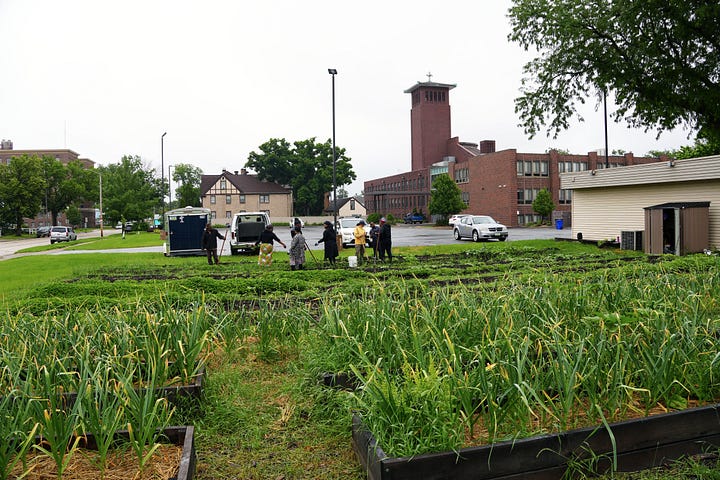
Community-based economic development
Community garden sites like the one created for Grow Pamoja at St. Paul’s United Methodist Church help us understand what it means to “meet people where they are.”
Recognizing that no one is alike, Mugisha Gloire (Founder/Executive Director of United We March Forward) explains that growing as a human requires being supported and valued for who they are. That understanding drives why he created UWMF and contributed to the development of the Grow Pamoja project.
For Mugisha, uplifting the entire person is a process of empowering an individual to a state of mind where they can see more possibilities for themselves. He shared that he views Grow Pamoja as an opportunity to foster social enterprise.
As someone embedded in the community, Mugisha often asks himself,
“How do I embrace the desires and ambitions of those uplifting me?”
Such a question speaks to the importance of investing in immigrants and refugees in culturally responsive ways.
Funding available through the USDA makes it possible to better serve and invest in the immigrant and refugee populations of Eastern Iowa. The USDA supports projects like Grow Pamoja through the Outreach and Assistance to Socially Disadvantaged and Veteran Farmers and Ranchers Program (2501 Program), which the 1990 Farm Bill created.
Administered by the USDA's Office of Partnerships and Public Engagement (OPPE), the 2501 program expands support for socially underserved and veteran farmers, ranchers, and foresters. The aim of the 2501 program is to connect farmers, ranchers, and foresters with USDA resources and services.
From 2010 to 2023, the 2501 program awarded 615 grants totaling more than $194 million to support the following:
Education, technical assistance, and training in agriculture, agribusiness, forestry, agriculturally-related services, and USDA programs
Outreach designed to assist historically underserved farmers in participating in USDA programs
So, what exactly is the Grow Pamoja project?
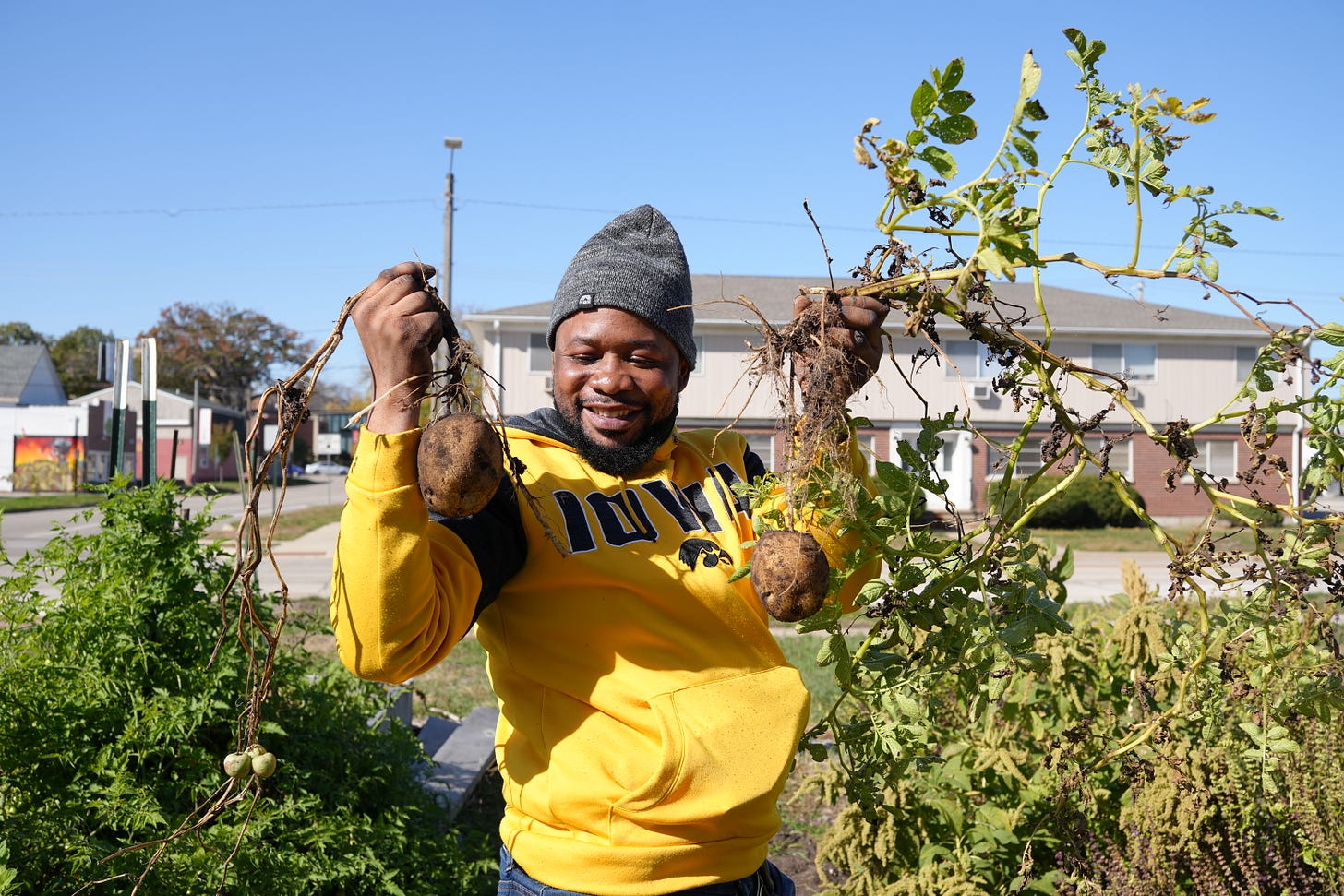
Growing Together
Grow Pamoja, a Train-the-Trainer project, serves the congregation of African National immigrants at St. Paul’s United Methodist Church. Beginning with five participants from the community, the Grow Pamoja team has grown and fluctuated in size throughout the years. Presently, eleven individuals are actively tending to and sharing the harvest from the garden site.
The project focuses on empowering the Grow Pamoja team to cultivate and connect with their home countries through food. With an emphasis on making connections - between concepts AND people - the project created a community of learners.
As learners and leaders in the community, everyone involved in developing the Train-the-Trainer project kept two things in mind:
- culturally relevant food access
- culturally and linguistically responsive education/support
A major goal of the project is to increase knowledge and knowledge sharing among immigrant and refugee communities about what farming in America looks like.
As Mugisha explains, “In eastern and central Africa, weather doesn’t change much seasonally. However, there are considerable shifts in weather and the landscape here in Iowa that require learning different farming practices and new techniques to improve efficiency.”
Hence, the Grow Pamoja curriculum seeks to develop greater confidence and clarity of direction among participants so they can grow food here in Iowa and teach others how to do so.
Through hands-on urban gardening workshops and lessons, the project provides tailored educational programming for people with diverse linguistic and cultural needs.
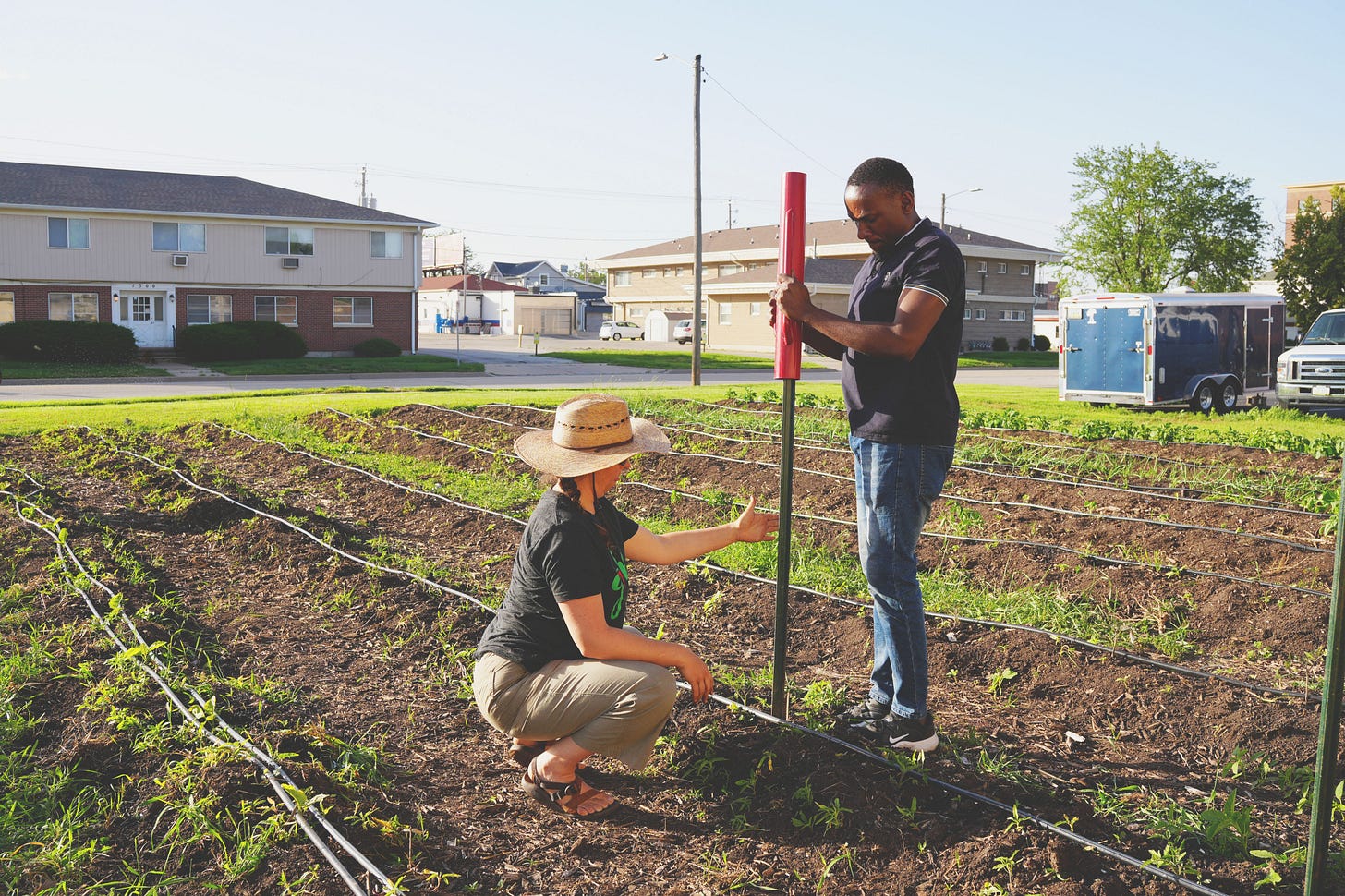
Interpreters for workshops and translators for lesson materials have been involved throughout the project. Such professionals are critical members of the learning community built through the Grow Pamoja project.
One interpreter named Fidel actively participates in the learning environment. He often asks his own questions and communicates answers to the group during workshops and lessons. He even found himself inspired to learn further about the farming techniques he shared with the Grow Pamoja team in Swahili. Fidel now explores and implements them at home with his wife to grow food.
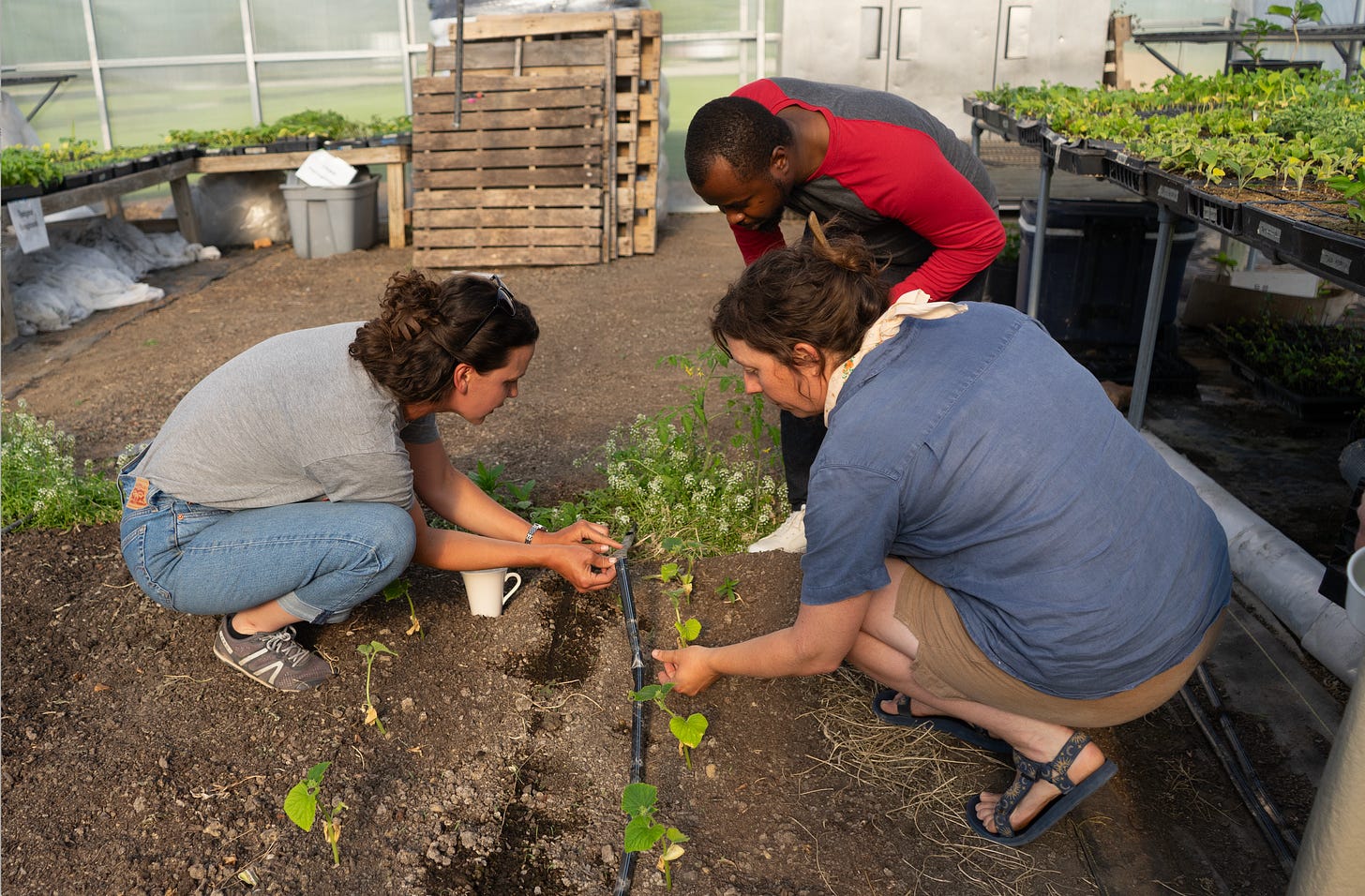
Intentional opportunities to connect
Although technical skills and knowledge are central to the project, Grow Pamoja also centers outreach and networking events.
Since the project's launch in 2022, the participants have had multiple social and professional opportunities to connect and strengthen their belonging.
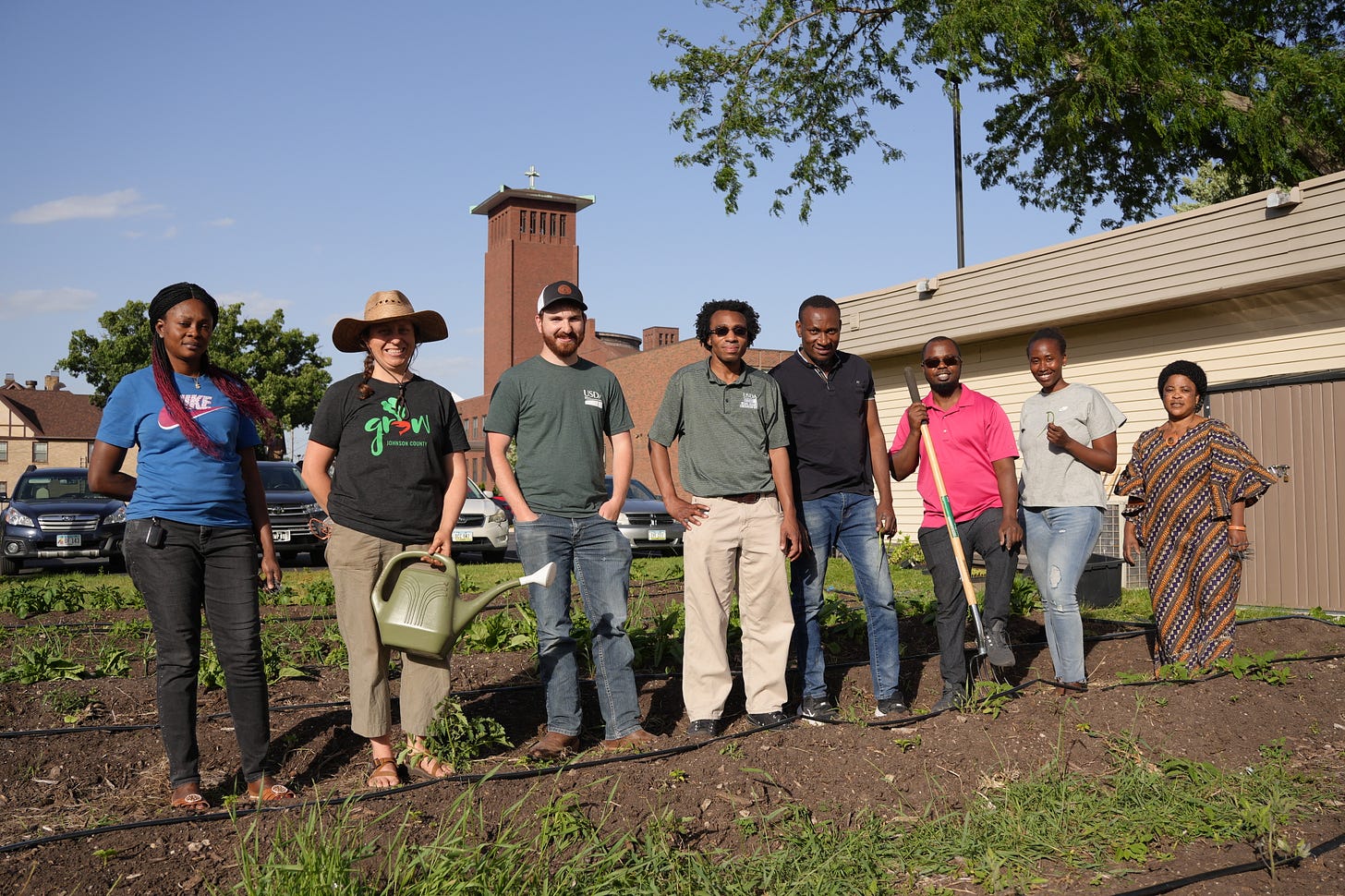
Staff at Iowa Valley RC&D curated a series of USDA site visits, community potlucks and fairs, Farm Field Days with Practical Farmers of Iowa, one-on-one business coaching, and market-related events to share experiences, knowledge, and resources.
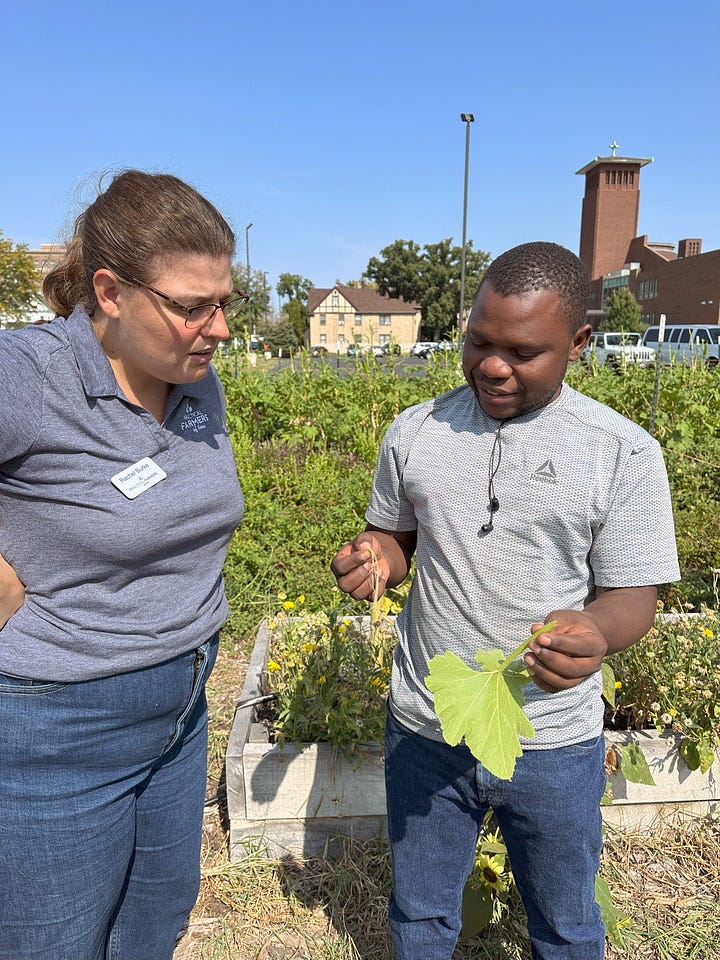
These crucial aspects of the Grow Pamoja project encourage participants to build a strong support system. One that can help them navigate their new surroundings and the challenges faced as members of Iowa's immigrant and refugee community.
One such challenge acknowledged by Mugisha includes how, “The foods that many immigrants eat are not found in most stores; and if they are found in ethnic grocery stores, it can be pricey.”
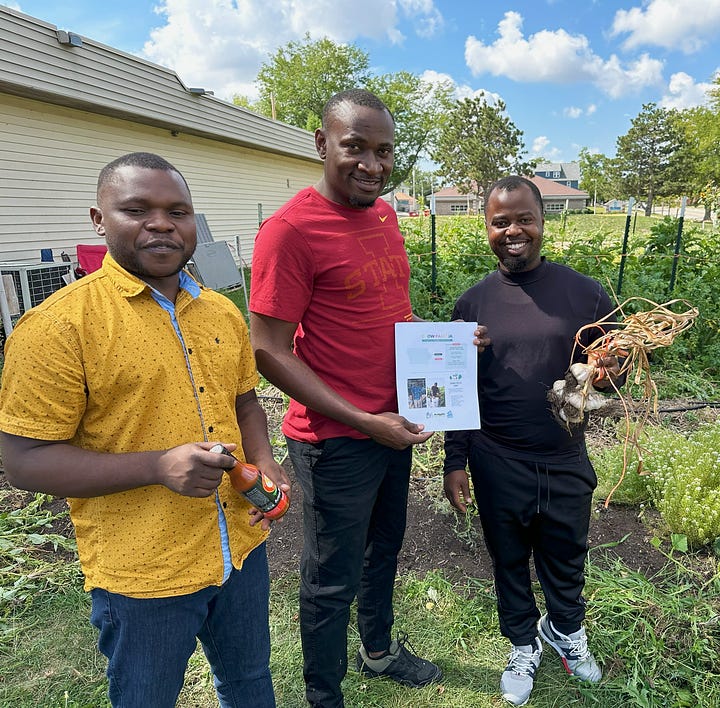
With this challenge in mind, the importance of the Grow Pamoja project came into focus for UWMF. In collaboration with Iowa Valley RC&D, the organization began exploring how to do the following:
- Improve community access to healthy & culturally relevant foods
- Provide opportunities for socialization that help individuals connect to their cultural roots and the agricultural backgrounds of their home countries
Mugisha shares that, “For community members who do not work, projects like Grow Pamoja offer a time and space to meditate, socialize, and ground people together in nature and in growing their own food.”
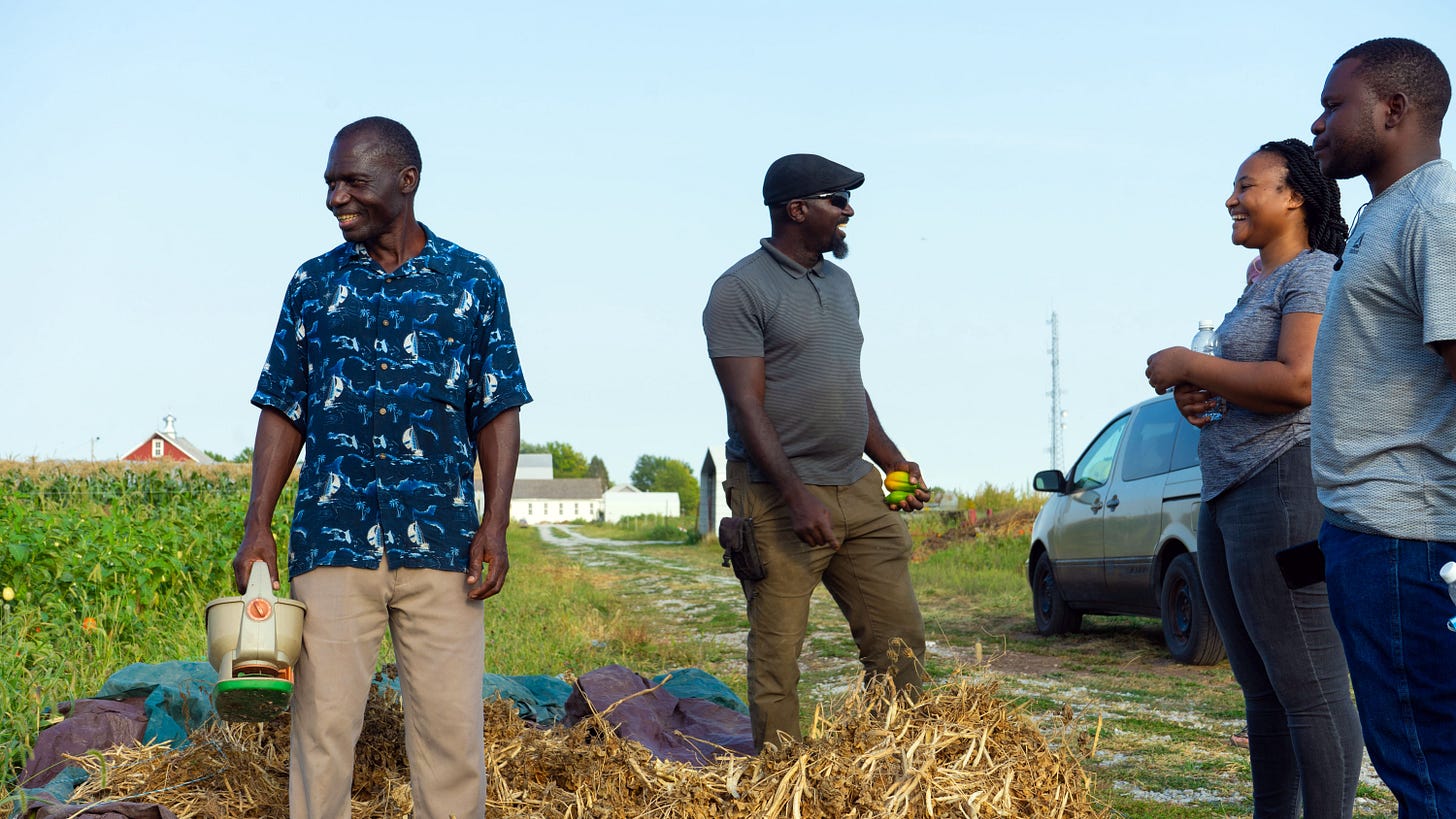
As a cultural mediator and outreach coordinator for Grow Pamoja, Mugisha feels hopeful about the project's future.
He describes the Grow Pamoja project as an “experience [that] may have awakened something; provided a desire for something.” He further states, “It is when we have an experience that an interest can be birthed and have ripple effects in our lives.”
Mugisha highlights how a few individuals have a spark of ambition and a strong drive to do something after their Grow Pamoja experience. He even mentions the successes of early participants from the project who have gone on to pursue their farming goals. One such farmer is Guy, who now farms through an Equitable Land Access program.
Take a glimpse into Guy’s journey farming through his contribution to a Photovoice project!
Seeds of connection and change
Through a train-the-trainer approach, all individuals involved in Grow Pamoja planted, sprouted, and spread seeds of knowledge. However, the project is not without its learning opportunities and areas for growth.
Iowa Valley RC&D and UWMF staff stretched their skills while developing and implementing the Grow Pamoja curriculum across multiple cultures, languages, farming experience levels, and schedules. These aspects of the program required changing approaches to meet the needs of adult learners with diverse linguistic and cultural backgrounds.
Additionally, as Mughisa pointed out, equally important aspects of the project were coordinating transportation, refreshments, garden maintenance responsibilities, and land access to meet participants' desires and ambitions.
While varying in scope, these other aspects of the program collectively led to deep shifts in perspective and interactions to develop mutual understanding within the Grow Pamoja partnership.
New partnerships are being planted as the Grow Pamoja project continues to grow in the hands of the garden team and UWMF.
Due to greater proximity and resources available to support the Grow Pamoja team, a partnership is being established with Linn County-based Feed Iowa First. From these new seeds of connection and change, the heart of the Grow Pamoja project will continue to thrive so long as responsive community- and skill-building are nurtured and supported.
Thanks for reading INDIGENEXUS!⋆。𖦹°⭒˚。⋆
We are a reader-supported publication. Subscribe to join the community, receive new posts, and co-create this space.

Member discussion